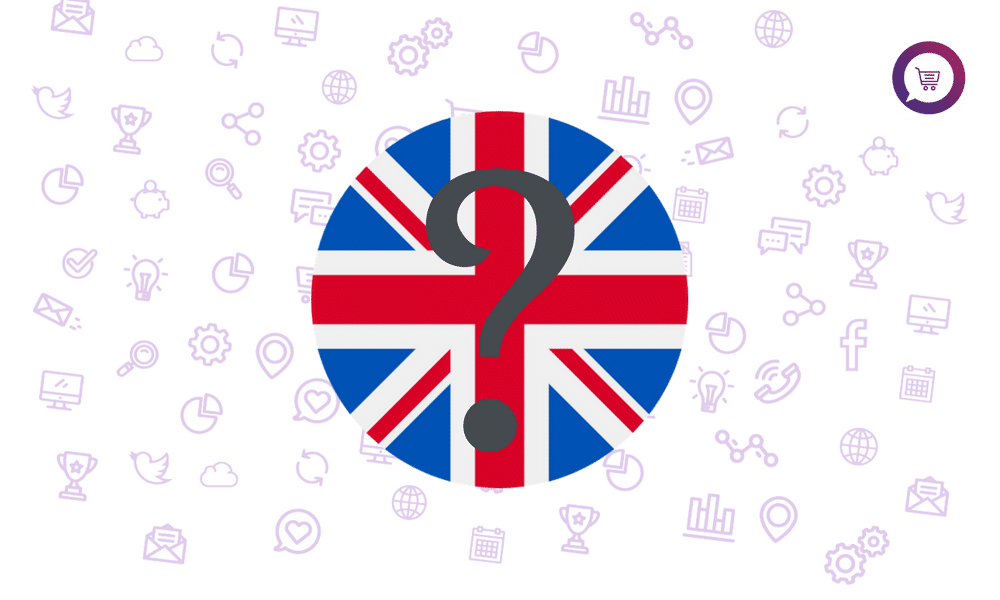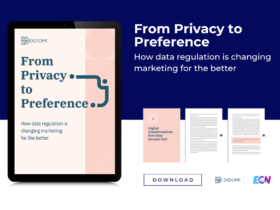In the wake of Brexit negotiations turning tougher on both sides, one question remains unanswered: “What about the future?” Despite all the demagogy generated around this topic, I believe we should try to have a look into three possible futures.
Here are the three possibilities:
- The Soft Brexit Case
- The Mid-range Brexit Case
- The Hard Brexit Case
Regardless of the polemics around the issue, some cases seem to be the most realistic according to the current state of discussions.
The Background of Brexit and the EU
The law and the institutions
The tricky part around Brexit is directly linked to the laws and treaties as well as the institutions. The EU’s single market is ruled by many political principles but four of them dominate. The “4 sacred freedoms of movement” regarding capital, services, merchandises and people. Being an EU or EEA member means abiding by those. The EU and EEA represent around 500 million consumers with some of the highest purchasing power in the World.
Brexit has led to a reshuffling of the situation and more and more member-states of the EU are pushing to enforce these freedoms putting Britain in a difficult negotiating position.
So, let’s see what are the options for Britain when it comes to its relationship with the EU post-Brexit
3 options will exist:
- The EEA
- The Swiss-style Trade Agreement
- WTO Rules
The EEA Agreement
The EEA Agreement would offer the UK a similar situation to countries like Norway or Iceland. The EEA is roughly a free-trade agreement without integrating the political union represented by the EU. To join it several conditions need to be fulfilled.
These conditions are:
- Paying an access fee
- Agreeing to all legislation passed by the EU
- Respecting the 4 freedoms
- Accepting the jurisdiction of the European Court of Justice
This agreement grants the country access to the single market, however, the country in question does not any voice in the EU policies and legislations.
The Free-Trade Agreement (EFTA/CETA)
The Swiss-style agreement is a multi-sectoral trade agreement. Negotiations are done on a case by case and industry sector basis. This agreement named EFTA (European Free Trade Agreement). The EFTA requires the application of EU legislation (on a partial basis), offers the possibility to join the EU VAT Area and the EU customs area.
Though due to the sectoral nature of this agreement, the negotiations tend to be extremely long to settle and the sectors are to be agreed by both parties excluding de facto key sectors that may threaten the EU industry.
WTO Rules
The WTO rules mean absolutely no free-trade agreement. Meaning that WTO rules would apply when it comes to customs duties. While some countries perfectly handle these limitations a country highly dependent on imports and exports of products subject to high tariffs could quickly struggle to make its exports appealing abroad unless associated with a massive currency devaluation to cover up.
The Possible Futures: Soft Brexit, Hard Brexit, and In-between Possibilities
The Soft Brexit Case
According to the most recent evolution in the negotiations, this seems to be the less likely option.
So how would a Soft Brexit look like?
Most likely it would mean that the UK would join the EEA, however, this would mean accepting the four freedoms as well as the ECJ jurisdiction.
That seems to be a no-go for the British government as most of their policies are linked to a clean break from Brussels Ruling.
The Mid-range Brexit Case
A mid-range solution would lead to an EFTA-style solution and despite the particular nature of it, it could help safeguard a form of free-trade for key sectors in the economy until a more comprehensive agreement would be reached (negotiations would most likely take up to a decade).
Nonetheless, it seems obvious that the UK would not be able to cherry-pick these sectors and that the EU would not grant passporting rights to the financial services industry due to the risk of dissolution it may mean for the institution.
The Hard Brexit Case
The hard Brexit case would mean a return to WTO rules leading therefore to the application of tariffs of up to 30%. This case would technically be the worst case for the UK as even the separation in terms of product norms may change and mean the need to create two versions of the same product to be allowed sell it, which could increase costs even more.
These three cases are the free possible evolutions. We will not approach the political and macro-economical events. One thing is certain, the hard Brexit case will create an enormous mess and may lead to huge economic problems on both sides. The EU respectively representing about 50% of the UK’s imports and exports and the UK representing about 17% of the EU’s.
Now let’s see what would be the impact in terms of e-commerce.
What would it mean for your E-Commerce?
The consequences of Brexit will be extremely different depending on which side of the channel your business is and how many products or services you export whether in the EU or in Britain. E-commerce also has specific regulations with regards to data protection and storage that will need to be addressed.
EU-based businesses and UK-based businesses
For most EU and UK-based businesses it will be business as usual, though, the most impacted will be the ones with strong trade relationships with the UK. Though, the advantage will be for EU-based businesses which will still have 27 partners within the free-trade agreement. Obviously, there will be an impact on both sides, yet, for EU-businesses, that could potentially be attenuated by the presence of the 27 other partners. UK-businesses, on the contrary, may have to refocus on their national markets.
Laws and Regulations
For EU-based businesses there will most likely be a backup solution as the 27 remaining member-states of the EU will still share the same standards in terms of products and business practices. While laws and regulations may change in the United Kingdom, from a short term perspective it is more than likely that there will be a transitional period. Meaning that regulations will probably start to divert with 4 to 5 years after Brexit will apply. Though levies and tariffs when exporting to the UK may start to enter into action pretty quickly if no deal is agreed.
For UK-based businesses, the situation may prove trickier, though, the most impacted will be the ones with strong trade relationships with the EU. These ones will suffer a great deal due to the probable end of free-trade.
Outsourcing will be a major issue as it is not limited exclusively to FTSE500 companies, small companies outsource as well! It is extremely common to find a web agency outsourcing some work to Estonia or Latvia or a shop importing supplies from Italy or Poland.
Supply chain
Supply chain issues could be a major issue. In the “borderless” EU companies had the possibility to outsource in different countries the manufacturing of parts of their production. It is particularly true in heavy industries such as the pharmaceutical, the automotive and the aerospace industries.
If we focus on a specific case of the Northern Ireland/EIRE border; it is very common to see Irish companies getting some supplies on the other side of the border and vice-versa.
In the event of a hard Brexit, these trade relationships may be halted from Day 1 because of the border issues.
Therefore, it is more than likely that if your business is located in the EU you may want to look for new trade partners within the EU just in case.
The biggest issue will be probably for the automotive and financial sectors. The automotive sector in the UK is heavily reliant on spare parts produced in other EU countries. On the financial sector, many EU-Based companies have been using the UK as a base for some financial services, they now will have to take another approach
Trade relationships
Trade relationships will definitely be impacted, the probable implementation of levies, tariffs, and end of passporting rights for strategic sectors will definitely have a major impact on trade relationships.
In the event of a hard Brexit, we may see a narrowing of prospects in terms of exports from the UK and therefore a potential loss of employment. The republic of Ireland may struggle a bit at the beginning, though, I think it will be highly supported by the rest of the member-states in order to reduce potential backlashes.
We will probably observe agreements develop, however, they may take a long time… The CETA (Canadian-European Trade Agreement) has been on the table for more than 7 years.
More specifically about e-commerce
While the “physical industry” will be impacted, e-commerce will be as well! Three major points will probably drastically evolve:
- Data Storage of P2I (Personal Identifiable Information)
- Cross-border transactions
- Price fluctuations
1. Data Storage of P2I
The Data Protection Directive entered into force in May 2016 gives a very strict framework on the rules that affect the locations as well as the rights to use data provided online by the users.
This could mean that stricter regulations may apply to hosting as the UK would no longer be part of the EU, particularly in the treatment and analysis of Personal Identifiable Information.
2. Cross-border transactions
Cross-border transactions may also be impacted heavily as the UK would automatically withdraw with its exit from the common EU VAT area as well as the Customs Union.
These two elements mean that in the event of a cross-border transaction VAT will be paid in the country of supply which may lead you to pay a product that would, in the end, be more expensive. Additionally, local rules may imply you to pay some extra money as a tariff. Finally, you may have to pay for customs clearing duties.
These basic changes will probably impact retailers like Amazon or other big names like this one.
E.g.: You are located in the UK and want to get a DVD player from a Spanish website because the price is 1.5 times cheaper. Let’s pretend the government implements a levy. That tariff could actually mean that your product will be more expensive than what you would pay on the UK website.
This type of element will automatically reduce the volume of trade within the two parties.
3. Price fluctuations
Price fluctuations will also be a non-negligible element as well. It would not be surprising to see a currency devaluation or revaluation happen post-Brexit which could either favour imports or exports.
Additionally, devaluations and revaluations of currencies imply necessarily a redesign of your pricing strategy, which could make your product or service more or less attractive and would, in the end, have an impact on your business.
[button link=”https://www.ecommerce-nation.com/100-most-successful-ecommerce-stores-uk/” type=”big” color=”white” newwindow=”yes”] What is the top 100 UK E-Commerce?[/button]
Brexit is a huge question mark, no one really knows what is going to happen and I do not pretend to have all the answers. Nonetheless, regardless of which side of the border you will be, you should seriously start considering your options as the clock is ticking.
What kind of Brexit do you think will be negotiated and how will it impact your e-commerce? Tell us below or tweet us!





